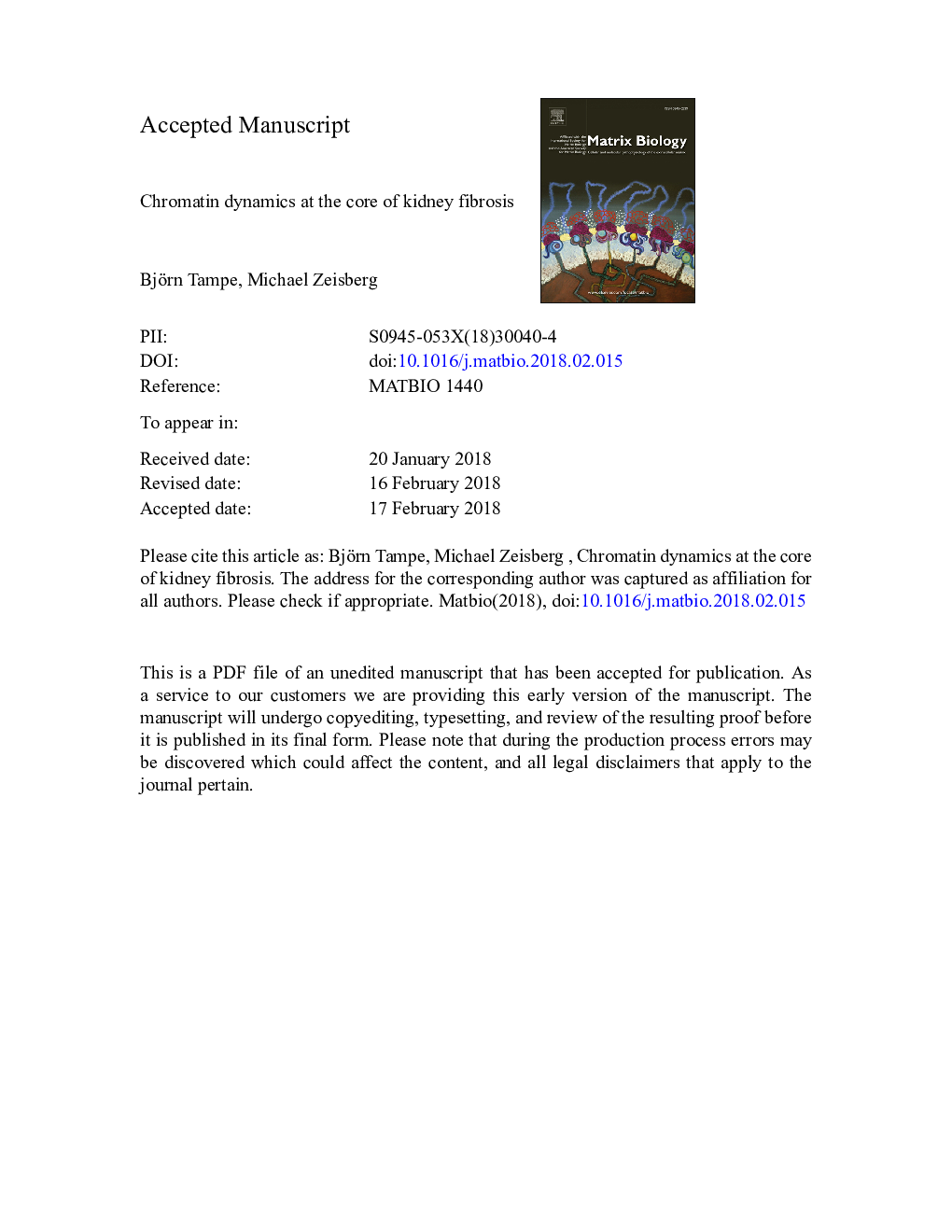| Article ID | Journal | Published Year | Pages | File Type |
|---|---|---|---|---|
| 8454994 | Matrix Biology | 2018 | 113 Pages |
Abstract
Progression of chronic kidney disease is a principal challenge in Nephrology, as effective therapies to halt or even reverse established lesion are not available yet. While numerous growth factors and environmental stimuli that drive progression of chronic kidney disease are present within the fibrotic microenvironment, the effector cells' genetic information needs to be accessible in order to enable the pro-fibrotic response. As more than 2â¯m of DNA encoding the genetic information is crammed as protein-DNA complex called chromatin within the nucleus of each cell, an accessible chromatin state is a prerequisite in the hierarchical order of events to enable production of fibrotic proteins and fibrotic cellular responses. Here, we review contribution and underlying mechanisms of chromatin organization, histone modifications and DNA methylation to progression of chronic kidney disease, provide recent evidence for cell type-specific cell fate decisions and discuss possible diagnostic and therapeutic applications.
Keywords
ptBAGFREZH2SAHFSASPhMTSAHADnmtPKDMBDBMP7HDACiEFERAASEndMTHDACDSBTGF-βGvHDMethyl-CpG binding domainTSABRD4DDRCTGFTETDNA methyltransferaseEndothelial to mesenchymal transitionROSAcetylationSuberoylanilide hydroxamic acidGraft-versus-host diseasechronic kidney diseaseESRD یا end stage renal diseaseEnd-stage renal diseasepolycystic kidney diseaseTransforming growth factor βTrichostatin AEMTbase pairsFACTten-eleven translocationRenin Angiotensin Aldosterone SystemBETdouble-strand breakConnective tissue growth factorPhosphorylationSenescence-associated secretory phenotypeendocardial fibroelastosisMethyltransferaseMethylationhistone deacetylase inhibitorCKDGlomerular filtration ratehistone deacetylaseDNA damage responseBromodomain-containing protein 4Bone morphogenic protein 7senescence-associated heterochromatin fociepithelial-to-mesenchymal transitionReactive oxygen speciesubiquitination
Related Topics
Life Sciences
Biochemistry, Genetics and Molecular Biology
Cancer Research
Authors
Björn Tampe, Michael Zeisberg,
